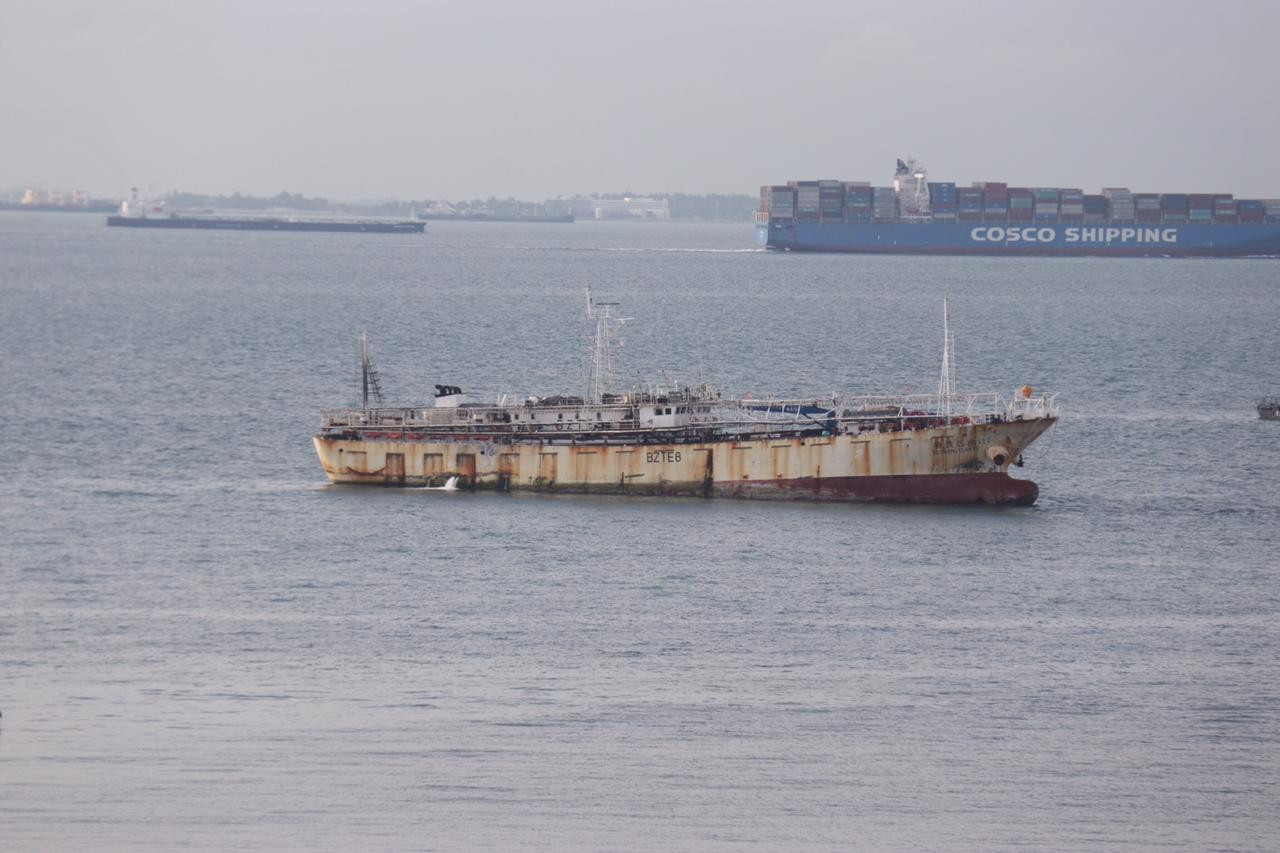Popular Reads
Top Results
Can't find what you're looking for?
View all search resultsPopular Reads
Top Results
Can't find what you're looking for?
View all search resultsEliminate transnational organized crime in fishing industry
During the COVID-19 pandemic, illegal fishing is likely to escalate as a result of reduced monitoring at sea, especially in the Africa and Asia regions.
Change text size
Gift Premium Articles
to Anyone
T
he ocean provides humans with many valuable live-sustaining resources. Its global economic value of US$24 trillion dwarfs the largest sovereign wealth funds owned by Norway, the United Arab Emirates, Saudi Arabia and China, which total $3.1 trillion, according to the World Wide Fund for Nature (WWF) and Boston Consulting Group in 2015. The ocean’s economic value derives from marine living resources at $6.9 trillion, shipping lanes at $5.2 trillion, the productive coastline at $7.8 trillion and carbon absorption at $4.3 trillion.
However, the vastness of the ocean also creates challenges to monitor and enforce all activities taking place in it. The ocean’s economic value is dwindling rapidly due to habitat destruction, pollution, impacts of climate change and overfishing. The Food Agriculture Organization (FAO) found in its latest report that 34.2 percent of the global fish stock had been overfished, up from 31.4 percent and 33.1 percent in 2016 and 2018 respectively.
Furthermore, one in every five fish found in the market is likely to be illegally caught or unreported, making illegal, unreported and unregulated (IUU) fishing one of the primary drivers of overfishing as Sjarief Widjaja et al say in their report IUU Fishing and Associated Drivers (2020).
The lucrative potential of the fisheries sector is appealing to many. Some business players have taken advantage of lax monitoring on the ocean to reap maximum profit by engaging in IUU fishing. Worse, law enforcement officers across the globe have often found crimes that were associated with IUU fishing, such as human rights abuses, human trafficking, document forgery and tax evasion.
Vessels involved in this crime often use forged licenses and registrations documents, and flags of convenience to obscure the beneficial owners. The owners often cloak themselves in shell companies and complex ownership structures. They also employ cheap labor, who are recruited through deception, and abuse them physically and mentally.
These crimes are committed in an organized manner by actors from various nationalities. This fits the definition of transnational organized crime (TOC) under the United Nations Convention Against Transnational Organized Crime adopted in 2000.
Following these findings, governments and experts have been pushing for the acknowledgment of the connection between IUU fishing and TOC and encourage countries to take necessary actions against IUU fishing.
Evidence of TOC in the fishing industry can be found in several cases in Indonesia. In 2015-2019, Indonesia successfully ended the operations of three notorious fishing vessels. All three vessels committed TOC to support their IUU fishing operations.
FV Viking, apprehended in 2016, was owned by a Spanish national through shell companies run by an Australian national and a Singaporean financier. FV Viking was identified to have committed criminal offenses, including countless forgery of documents to support illegal fishing operations in Southern Atlantic waters.
Other examples are MV Andrey Dolgov and MV NIKA, which are connected to a Russian national domiciled in South Korea who orchestrated similar crimes as FV Viking.
In 2015, Indonesia also dealt with gross human rights abuses committed by fishing companies affiliated with Thai owners in Benjina.
The successes stemmed from political will and strong leadership shown by the government to combat fisheries crime. Indonesia also managed to build strong cooperation with international partners, notably Interpol and likeminded countries. In investigating FV Viking, Indonesia and Norway established a Multilateral Investigative Support Team (MIST), which enabled a joint investigation.
In handling MV Andrey Dolgov and MV NIKA, Indonesia took advantage of Interpol’s Regional Investigative and Analytical Case Meeting (RIACM). Through this mechanism, Indonesia and Interpol managed to gather enforcement officers from Australia, South Korea, the United States and Panama to take enforcement measures in various jurisdictions.
TOC in fisheries massively drain marine living resources, undermines human rights, mocks legitimate fisheries business environment, and threatens maritime security. These practices can still be found today, including in the recent abuses against Indonesian nationals onboard Chinese fishing vessels.
During the COVID-19 pandemic, illegal fishing is likely to escalate as a result of reduced monitoring at sea, especially in the Africa and Asia regions.
Countries must therefore develop a shared understanding of TOC in fisheries and formally support the 2018 International Declaration Against Transnational Organized Crime in the Global Fishing Industry (the Copenhagen Declaration). To date, only 28 countries have signed the declaration.
Based on our experience, political will, strong government leadership, interagency cooperation and international cooperation are the prerequisites for effective enforcement against fisheries crimes. These elements shall be complemented with strong laws that adopt corporate criminal liability with severe criminal punishments and extraterritorial principles to ensnare perpetrators abroad.
Governments should also consider prohibiting registers for foreign fishing vessels to operate in their waters to combat fisheries crimes.
Closing access for foreign fishing vessels has had positive impacts on Indonesia. The country enjoyed a boost in fish stock from 7.3 million tons in 2013 to 12.54 tons in 2017, and the fishermen savor economic improvement, as evident in the average increase of fishermen exchange rate from 104.63 in 2014 to 112.88 in 2018. The tax revenue from the fisheries sector neared Rp 2 trillion ($138 million) in December 2019.
Banning foreign fishing vessels from operating in sovereign waters, including Exclusive Economic Zones, will contribute significantly to the prevention of fisheries crimes and to drive sustainable fisheries management.
***
Mas Achmad Santosa is the founder and CEO of Indonesia Ocean Justice Initiative. Januar Dwi Putra is an ocean governance specialist and formerly worked on the Presidential Task Force to Combat Illegal Fishing (Satgas 115).









